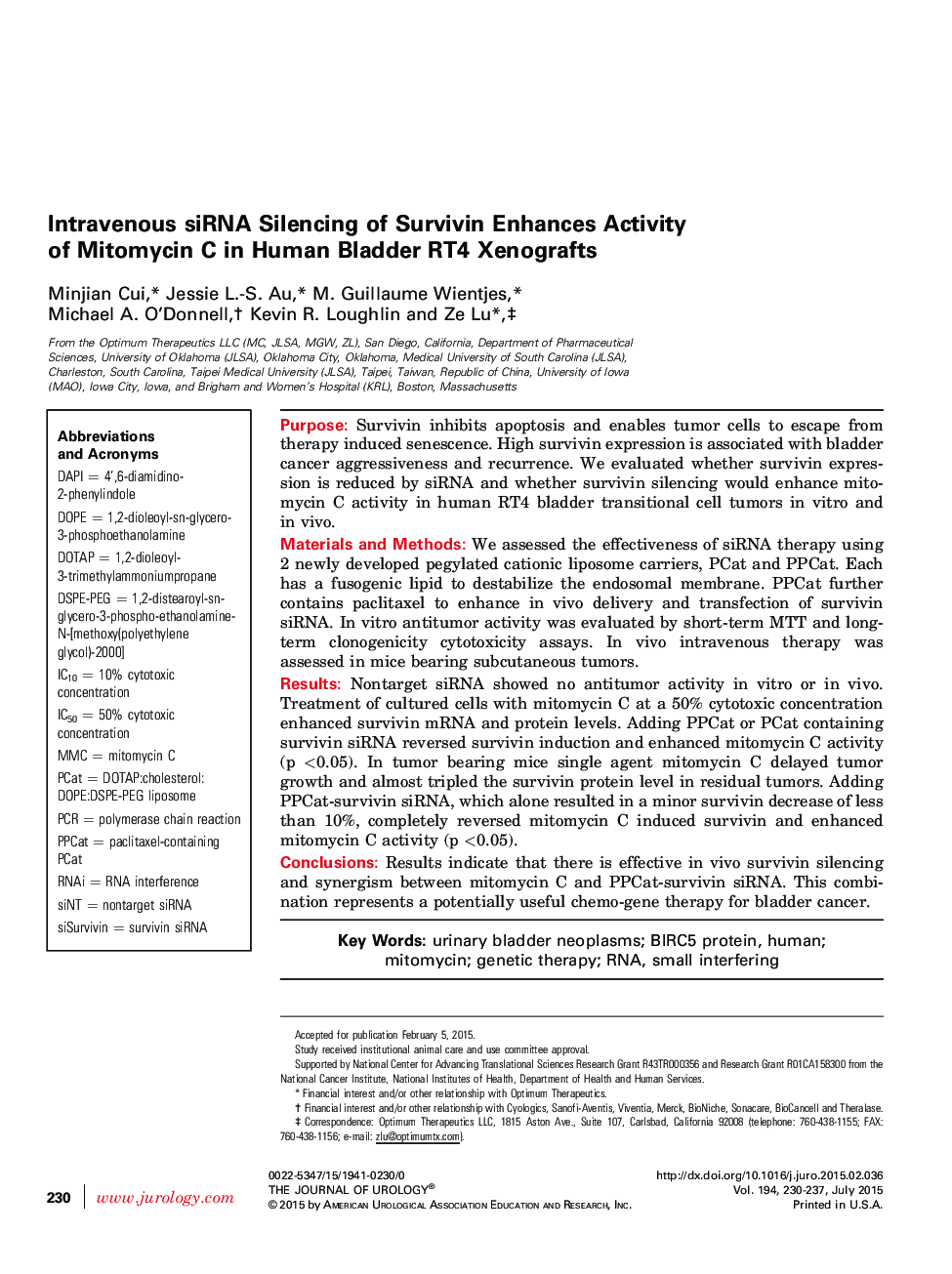| Article ID | Journal | Published Year | Pages | File Type |
|---|---|---|---|---|
| 3861731 | The Journal of Urology | 2015 | 8 Pages |
PurposeSurvivin inhibits apoptosis and enables tumor cells to escape from therapy induced senescence. High survivin expression is associated with bladder cancer aggressiveness and recurrence. We evaluated whether survivin expression is reduced by siRNA and whether survivin silencing would enhance mitomycin C activity in human RT4 bladder transitional cell tumors in vitro and in vivo.Materials and MethodsWe assessed the effectiveness of siRNA therapy using 2 newly developed pegylated cationic liposome carriers, PCat and PPCat. Each has a fusogenic lipid to destabilize the endosomal membrane. PPCat further contains paclitaxel to enhance in vivo delivery and transfection of survivin siRNA. In vitro antitumor activity was evaluated by short-term MTT and long-term clonogenicity cytotoxicity assays. In vivo intravenous therapy was assessed in mice bearing subcutaneous tumors.ResultsNontarget siRNA showed no antitumor activity in vitro or in vivo. Treatment of cultured cells with mitomycin C at a 50% cytotoxic concentration enhanced survivin mRNA and protein levels. Adding PPCat or PCat containing survivin siRNA reversed survivin induction and enhanced mitomycin C activity (p <0.05). In tumor bearing mice single agent mitomycin C delayed tumor growth and almost tripled the survivin protein level in residual tumors. Adding PPCat-survivin siRNA, which alone resulted in a minor survivin decrease of less than 10%, completely reversed mitomycin C induced survivin and enhanced mitomycin C activity (p <0.05).ConclusionsResults indicate that there is effective in vivo survivin silencing and synergism between mitomycin C and PPCat-survivin siRNA. This combination represents a potentially useful chemo-gene therapy for bladder cancer.
